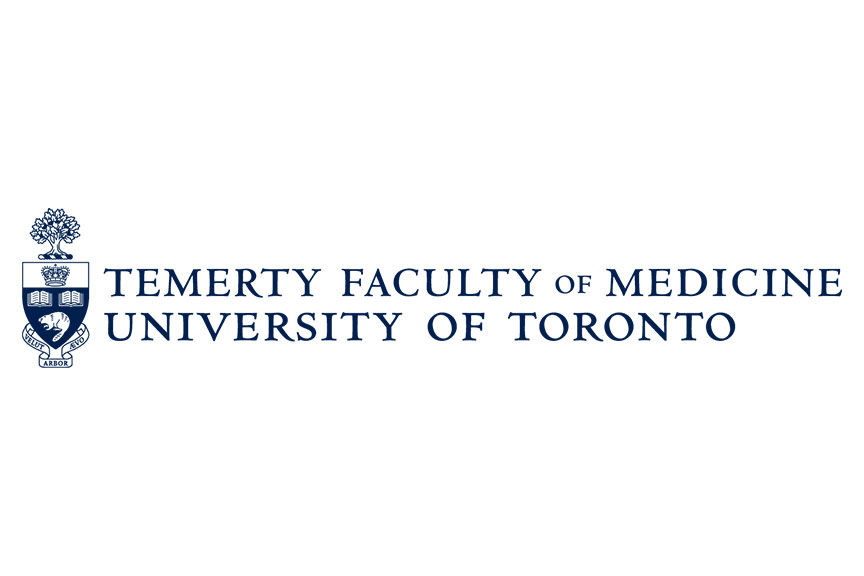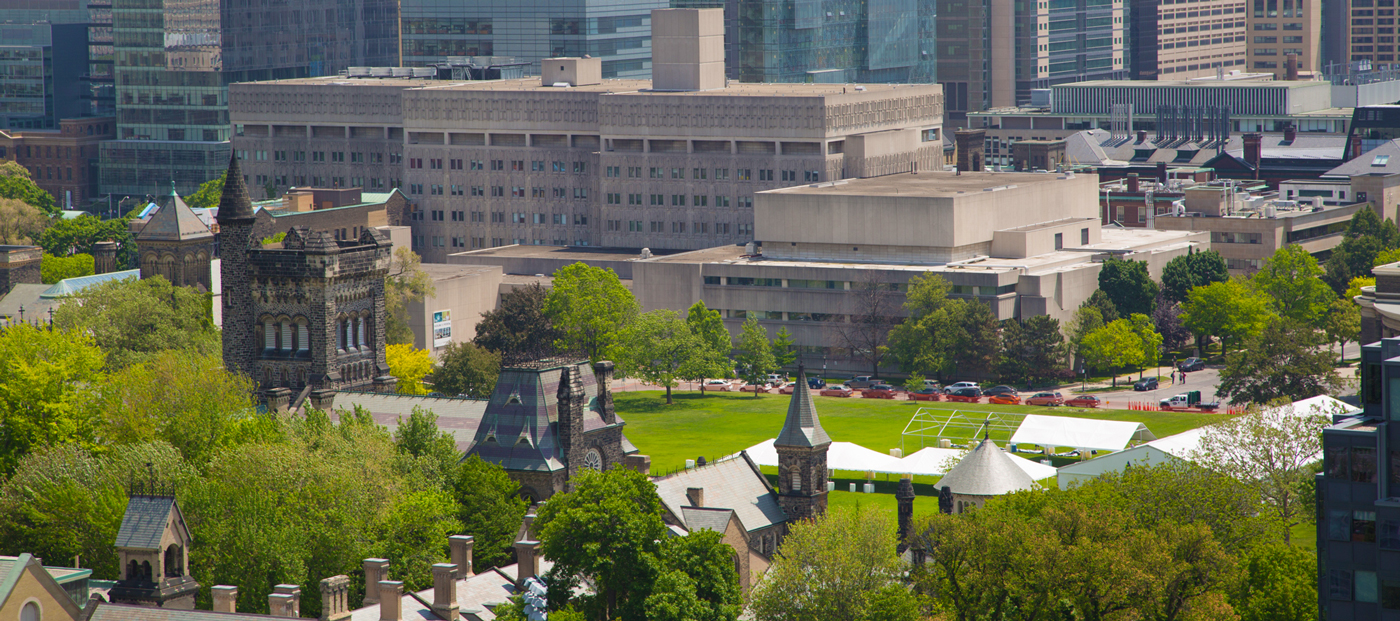

Dr. Jeannette Goguen
Directeur(trice) du programme
Sheri Johnston
The Internal Medicine program is a three year specialty program for those who intend to complete PGY4/ PGY5/ PGY6 subspecialty training. The program supports a fourth year of Internal Medicine training for residents, when required. We have approximately 65-70 residents in each of the PGY1-3 years.
Individuals applying to the Internal Medicine Program at the University of Toronto must have successfully completed their medical school training by June 30, 2021 for the current CaRMS cycle.
It is the applicant’s responsibility to ensure all required forms are completed correctly and all supporting documentation is submitted before February 8, 2021 at 12:00 (noon) EST, as this is when the CaRMS Online Application site closes. Incomplete or late applications will not be considered.
We receive approximately 450 applications, of which approximately 200 applicants will be offered an interview. Applicants who advance to the interview phase of the application process should note that participation in an interview is mandatory to be considered for a position in our program.
Ontario | |||
|---|---|---|---|
Effective October 4th, 2023 | |||
PGY1 | $67,044.99 | ||
PGY2 | $72,804.48 | ||
PGY3 | $78,190.61 | ||
PGY4 | $84,712.26 | ||
PGY5 | $90,073.03 | ||
PGY6 | $95,190.86 | ||
PGY7 | $99,836.15 | ||
PGY8 | $105,844.41 | ||
PGY9 | $109,734.47 | ||
Professional Leave | 7 working days/year Additional time off provided for writing any CND or US certification exam, leave includes the exam date and reasonable travel time to and from the exam site. Additional RCPSC & CFPC Certification Examination Prep Time
|
Annual Vacation | 4 weeks |
Meal Allowance | Non |
Frequency of Calls | 1 in 4 In-hospital, 1 in 3 home |
Pregnancy Leave | 17 weeks |
Parental Leave | 35 weeks, 37 weeks if resident did not take pregnancy leave |
Supplemental Unemployment Benefit (SUB) Plan | Top-up to 84% 27 weeks for women who take pregnancy and parental leave; 12 weeks for parents on stand-alone parental leave. |
Provincial Health Insurance | Oui |
Extended Health Insurance | Oui |
Provincial Dues (% of salary) | 1.3% |
Dental Plan | 85% paid for eligible expenses |
CMPA Dues Paid | Under current arrangements, residents are rebated by Ministry of Health and Long Term Care for dues in excess of $300. |
Long-Term Disability Insurance | Yes – 70% of salary, non-taxable. |
Statutory and Floating Holidays | 2 weeks leave with full pay and benefits; 10 stat days plus 1 personal floater. Residents are entitled to at least 5 consecutive days off over the Christmas or New Year period, which accounts for 3 statutory holidays (Christmas Day, Boxing Day and New Years Day), and 2 weekend days. |
Life Insurance | Yes, 2x salary |
Salary and Benefit Continuance | A resident that can’t work due to illness or injury will have salary and benefits maintained for 6 months or until end of appointment (whichever occurs first) |
Call Stipend | Regular: $127.60 in-hospital; $63.80 home call or qualifying shift on shift-based services. Weekend premium: $140.36 in-hospital; $70.18 home call or qualifying shift on shift-based services. |
Visit the PARO website.
www.myparo.ca

We receive approximately 450 applications through the Canadian Medical Graduates (CMG) stream, of which approximately 200 applicants will be interviewed for 51 placements. We receive approximately 400-600 applications through the International Medical Graduates (IMG) stream, of which 50 applicants will be interviewed for approximately 11 placements
It is the responsibility of the applicant to ensure all information provided is complete and accurate. Applications that are incomplete, completed incorrectly or that contain inaccurate information will not be considered. If any of the application sections are unclear, please request clarification well in advance of the deadline, as no extension is possible. It is critical that applicants are very familiar with the R-1 Main Residency Match first iteration applicant timetable.
The Internal Medicine Program is highly competitive. We receive significantly more applications than there are spots available each year and, as a result, many strong candidates are not offered interviews or accepted into the program.
A virtual interview is mandatory. To ensure a degree of flexibility and equal opportunity, applicants schedule their interview time directly through an online booking system. Scheduling opens to all applicants across all Internal Medicine programs on the same date. Interview times are granted on a first come, first serve basis. If your availability has changed after you have secured your interview time, you may request a change based on the remaining spaces available. However, our ability to accommodate your request can not be guaranteed.
It is your responsibility to ensure that the email address provided with your application is correct and monitored regularly. Responses must be received before the deadline. No exceptions will be made.
Leading up to interviews for our program, there will be a number of organized townhalls for applicants to join. During these townhalls, the Program Director and Chief Medial Residents will present important information and highlights about the Internal Medicine program at UofT and be available to answer questions. The PD portion will be followed by open Q&A with current residents from the Internal Medicine program. This will provide applicants a candid and honest look into specific aspects of life as an IM resident and living in Toronto. Out of fairness to all applicants, no individual meetings can be scheduled with the Program Director or the Site Directors. Each CMR may be approached via email to answer questions about their experience in the program.
All Internal Medicine trainees will be assigned a Base Hospital for their PGY1 and PGY2. In PGY3, they will go back to their PGY1 Base Hospital. The Base Hospitals act as an administrative home base. At the time of online registration for PGY1, you will have the opportunity to rank base hospital sites.
During PGY1, you will also spend at least half of your rotation blocks at your base hospital, while during your PGY2 and PGY3, you will have the opportunity to rank your preference for career-choice rotation sites in preparation for the subspecialty match. Note for PGY3 residents, ranking of site preference is limited to career choice rotations in the first three blocks. We do our best to accommodate site preferences in coordinating base hospital and rotation schedules.
Although there will be opportunities to indicate site preferences for some rotations, all residents will at some point be expected to complete rotations at sites not located in the downtown core. It is the resident’s responsibility to organize transportation to and from these sites. We will not accept requests to avoid a site based on concerns about the commute.
Every hospital site follows the same University of Toronto-defined rotation objectives and evaluations. There may be some variation in content due to hospital-specific differences (i.e. patients admitted); however, all our sites are excellent and considered equivalent in terms of the value of the resident experience.
Yes, all residents are required to complete overnight calls with some variation between rotations and sites. Two weeks before each rotation block, you will receive a schedule from the rotation coordinator, or designate, indicating when you are on call. It is the resident’s responsibility to honor call commitments and to request any time off according to the vacation/educational leave approval guidelines. Please see the Professional Association of Residents of Ontario (PARO) website for further information on call expectations.
Some residents will have a greater focus on research and as such, may be interested in entering the Clinician-Scientist Training Program, this would require that you step out of residency training while pursuing the research. The move of the Royal College examination into the PGY3 year makes it harder to consider scientific training at the same time as clinical training.
There are several opportunities for residents to get involved. Residents elect representatives for several committees including the Resident Program Committee. The Internal Medicine program is responsive to the needs of its residents and welcomes any feedback or suggestions. Academic Half Days are an excellent example of a student-motivated initiative that was then implemented by the program. There are also opportunities to get involved through base hospital initiatives.
The structure of the program is such that it provides a strong network of support to residents. In addition to support staff provided through the Internal Medicine program and Post-Graduate Medical Education, each site has a designated Site Director and Chief Medical Resident (PGY4) available to answer resident questions. These individuals are there to provide support and resources to residents based at their site.